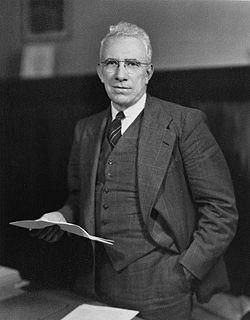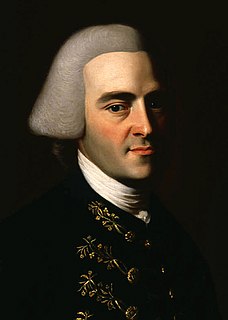A Quote by Howard Zinn
The democratic principle, enunciated in the words of the Declaration of Independence, declared that government was secondary, that the people who established it were primary. Thus, the future of democracy depended on the people, and their growing consciousness of what was the decent way to relate to their fellow human beings all over the world.
Related Quotes
The thing to remember about the Declaration of Independence and the profession of freedom is that it was written by people who were quite free and who were surrounded by people who were not free. The people who wrote the Declaration of Independence were ventriloquists really. The obsession with freedom makes no sense when it applies to them.
Surely, if it is the right of the people to "alter or abolish," it is their right to criticize, even severely, policies they believe destructive of the ends for which government has been established. This principle, in the Declaration of Independence, suggests that true patriotism lies in supporting the values the country is supposed to cherish: equality, life, liberty, the pursuit of happiness. When our government compromises, undermines, or attacks those values, it is being unpatriotic.
The War between the States... produced the foundation for the kind of government we have today: consolidated and absolute, based on the unrestrained will of the majority, with force, threats, and intimidation being the order of the day. Today's federal government is considerably at odds with that envisioned by the framers of the Constitution. ... [The War] also laid to rest the great principle enunciated in the Declaration of Independence that 'Governments are instituted among Men, deriving their just powers from the consent of the governed'.
The words of the Declaration of Independence, as given effect by Washington...are to be accepted as real, and not as empty phrases...that in very truth this is a government by the people themselves, that the Constitution is theirs, that the courts are theirs, that all the government agents and agencies are theirs... It is for the people themselves finally to decide all questions of public policy and to have their decision made effective...We here, in America, hold in our hands the hope of the world.
People don't even recognize who the Founding Fathers of the United States were. They were exceptional human beings - when you signed the Declaration of Independence, that was a death warrant they signed their name to. You have to have courage to put your name on a death warrant against the most powerful nation in the world at that time. And yet, we didn't honor who they really were. They were deists. They lived an enlightened belief system.
Many flagship state universities have wonderful digital libraries that are accessed by people around the world. In future, if not current, budget crises, trustees, board members, and administrators may wonder why these state institutions - with an articulated primary clientele of students, faculty, and staff members and a secondary clientele of all citizens of the state - should be spending resources on a digital library that is used by many people beyond the primary and secondary service populations.
The founding of our Nation was more than a political event; it was an act of faith, a promise to Americans and to the entire world. The Declaration of Independence declared that people can govern themselves, that they can live in freedom with equal rights, that they can respect the rights of others.
I feel many problems that we are facing, are man-made problems, we have too much emphasis on this secondary thing, forgetting our foundation. At foundation, we are the same human being and we are sharing the same planet. Six billion human beings' future is my future and my future is never separate from the future of six billion human beings.






































